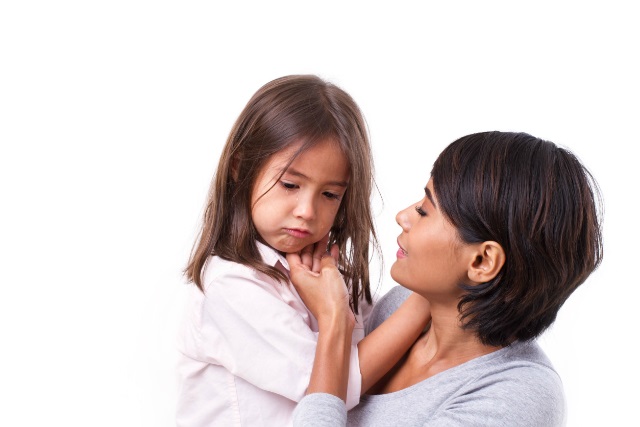By Splendor Eloke Young
As parents or guardians, we must work within the consciousness that children also have the tendency to get hurt by our actions or inactions. The fear of losing authority and respect has made most parents abandon the phrase “I am sorry” when relating with their children. Learning to say “I am sorry” to your child when you know you have made a mistake, will go a long way in building and maintaining a great parental relationship between you and the child, as well as showing mutual respect which we all should strive to teach and imbibe.
There is a popular phrase that says; respect is reciprocal, and a great way to show you respect your child is by rendering an apology to him or her when you realize you are in the wrong. Parents who desire to groom children with a healthy self–esteem and high personal value have learnt how to apologize to their kids when they go wrong. Offering gifts or making your child’s best meal as a form of appeasement for your wrongdoings cannot override the importance of a sincere apology.
Every great parent must realize that apologizing is nurturing. Nurturing a child involves prioritizing his emotions above the frustrations you face. Even when you lose control, acknowledging a misstep and apologizing for it proves a great deal, that you have great value for the child. As a parent you are a guardian to your child and not a control freak or a dictator, therefore; mistakes are sometimes permissible. Rendering apologies prove that you nurture more and control less. Since children are meant to be nurtured and not driven by the horn, then real parents who intend to nurture confident children must learn to apologize for their wrong acts.
True Apologies solidify bonds amongst parents and their children. Saying “I am sorry” to a child when you are wrong helps the child to realize that you are not without mistakes too. Apologies repair mistakes, and repairing mistakes can take a relationship to a totally new level. In addition, true apologies help adults build an authentic relationship with their children—one in which both people will sometimes make mistakes. Repairing mistakes (apologizing) can and often does take a relationship to a new level.
Teaching a child how to take responsibilities for his actions can be very frustrating most times, but never forget that children learn from example, as a mother you are the perfect mirror and example your child beholds each day. Offering a true apology teaches children—even toddlers—how to take responsibility for their actions and how to forgive. Taking this responsibility as a mother also gives the child boldness to as well stand up to his responsibilities.
Here are a few ways to easily apologize to young children:
Explain without giving excuses. Two wrongs don’t make a right. Some parents start to apologize and then veer into excusing themselves because the child was in the wrong. A good way to apologize is doing it without apportioning blames or giving excuses for your actions.
In addition, follow up with action. It’s a great deal to note that actions are what makes asking for forgiveness effective. Children listen to your actions than words. When apologizing to a child, do not make promises you cannot keep. If you have said “I am sorry’ let your actions really show that you mean every word. If we desire to build a cordial and transparent relationship with our children then, our actions and attitudes need to speak as loudly as our words. If we keep making the same mistake over and over again, our apologies will start to ring hollow. Apologies can become a normalized courtesy when you do not mean what you say so mean it before you utter it; learn that actions show that you truly mean it.
Be age-appropriate. You could also decide to be age-appropriate in rendering your apology to your child. If they’re little, physically get down on their level. You’re a lot bigger than a young child, so make yourself as physically approachable as you can. Squat, stoop or sit down. Make good eye contact. Hug your child. Your body communicates as well as your words, and a posture of humility communicates vast amounts to a young child that they’re not likely to verbally comprehend. If they’re bigger kids, you can use more words—just make sure they’re designed to show that mums screw up, and mums love their kids.
In conclusion, every parent knows that pride is the middleman that comes in-between being wrong and rendering an apology but your ability to say “I am sorry” to that little child you have hurt, shows that you love your children more than your pride. Learn to apologize and let the pride slide as this can save not just the day but life-long relationship.




